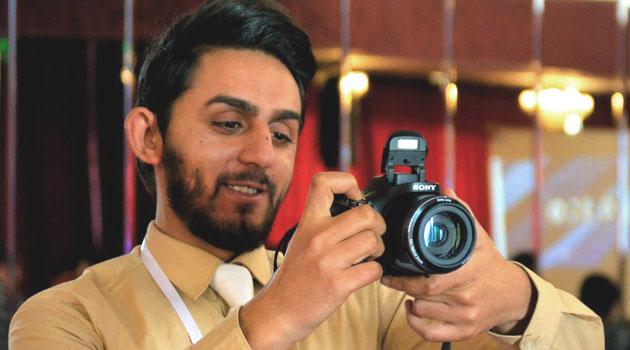Macedonia: Children's education being cut short by early and forced marriages

Teen marriages pose a dilemma for primary and secondary education, which in Macedonia is regulated by law, compulsory, and meant to be finished at the age of 18. In practice, teen marriages are still being approved by the authorities, with no one being concerned about the teenagers’ further education. Those most devastated by such parental and institutional actions are girls, who, instead of getting an education and living a normal way of life for their age, are left to continue living in poverty and dysfunctional marriages.
“I don’t go to school because my husband and my mother-in-law do not allow me to. I am married for seven months, I don’t plan to go back to school,” says a 16-year-old girl from Prilep, Macedonia.
The number of such couples is increasing every year. According to data from the website of the Ministry of Labour and Social Policy, in the period from 2013 to 2016, a total of 655 teen marriages were registered, 111 of them between people from the ethnic Roma community.
Experts claim that getting married at a young age brings up the issue of how plausible it is for those young people to finish their educations due to all of the obligations that come with marriage as well as the obligations of parenthood.
“To solve this issue, it is necessary to dedicate special attention to the teaching staff in the educational institutions, especially in areas where such a problem is quite frequent. There is also another problem here, which is that those young people who get married most often stop going to school, even though according to law, secondary education is obligatory. Therefore, we ask ourselves how many marriages are registered and of those, how many have resulted in proper sanctions against the parents who allow their children not to go to school?” asks Dejan Tosheski (MA in Law).
Married even at 13
During the 2015-2016 school year, the number of marriages at the “Dobre Jovanoski” Primary School in Prilep was five, while this school year began with three marriages that happened during the summer.
“In our school, getting married at a young age, especially among students of the Roma population, is a frequent phenomenon. The age of the students who get married is somewhere between 13 to 16 and it is most usual among the female population. Despite actions undertaken by the school, this phenomenon is quite common,” says Violeta Lashkoska, the principal of the “Dobre Jovanoski” Primary School in Prilep.
Voislav Stojanovski from the Helsinki Committee for Human Rights considers it necessary to include sexual education in the schools, as well as to make it possible for the courts to hand down harsher sentences in order to decrease the number of teen marriages.
“There is an urgent need to introduce sexual and reproductive education into the primary schools. The Ministry of Health has to ensure there are gynecologists and pediatricians in all municipalities. Lastly, the courts should have a stricter punishment policy and should sentence parents to more effective prison terms when they allow their child to live with another person out of wedlock,” says Voislav Stojanovski, who is a legal advisor for the Helsinki Committee.
Petrifying confession of a young girl: They have destroyed my life!
According to field research conducted in July 2016 in the cities of Prilep, Bitola, Strumica, Skopje and Veles, out of 24 female respondents of the Roma ethnicity, four were in marriages at a young age somewhere between 14 and not yet 16, and some adult men were married who had only just turned 18.
One of those cases is A.S. from Strumica, who insisted on being anonymous during the interview. She was 14 when she was forced by her parents to get married to a 22-year-old partner of their choice. She had never been to school her whole life because that was her parents’ choice as well.
“They have destroyed my life, I will never forgive them for everything they have done to me. I was little, I wanted to go to school and, like every girl, I had someone I liked and my parents did their best to separate us. Even if I had reported this, nothing would have helped, because I am a Roma girl, and the general opinion is that we should be married young, and my parents could have been even worse, there are some who sell their daughters in Italy for money. They are to blame for everything, these tears are for my children, the children I have never seen, and my sorrow about school and the kids… these things will leave a scar on my soul,” claims A.S..
Neither strategy, nor sanctions
These teen marriages and illegitimate marriages, adds Tosheski, are especially common in areas where the poorest population lives, so letting a child get married or live illegally with someone is a normal expectation and the possibility for “child trafficking” is not excluded, meaning that it provides parents with income.
“In Macedonia there is no general strategy for solving this problem. The institutions that are supposed to be dealing with prevention and sanctions for this phenomenon of illegitimate marriages have simply accepted it as a normal thing because it usually happens among the poorest classes of the population, and due to that, they do not make greater efforts to solve it,” states Dejan Tosheski.
Still, a worrying fact is legal action is not taken in cases where a child aged 16 has entered an illegitimate marriage without parental agreement, because any child at that age has the right to live outside their home with another person.
“I reported it to the police… and when they asked me where my girl had gone, I told them everything. The next day the police came to inform me that… I should let her live in peace because I couldn’t do anything since she has already turned 16, so I went there with my husband, but it was in vain, she didn’t come home, and now no one can stand watching her pain, especially not me as her parent. She’s your kid, your blood, and it hurts to see her suffer, but she is not the only one to blame. We are guilty, too, and we don’t have power, and we don’t know how to do things, but still the police should have scared her, not just left her at that place where she is suffering,” says one mother.
Tosheski claims the institutions in charge of this issue have to act more seriously with proper solutions and sanctions.
“After the participants in such violence are detected and sanctioned, the experts in the Social Work Centres should properly work with their victims and somehow provide chances for them to continue with their education. The process should not stop with sanctions, they should work on the victims who were part of such illegitimate marriages and give them the opportunity to get back to a normal life, a suitable life for their age,” explains Tosheski.
A request for free access to public information was sent to 27 first-instance courts in the Republic of Macedonia. Only eight responded with information about the total number of marriage licenses issued for marriages between young people who had just turned 16 in the years 2014, 2015 and 2016. From these results it can be seen that in 79 cases, the courts issued marriage licenses to people who had just turned 16 after receiving an opinion about the potential marriage from the Social Work Centres.
Snezana Jovanoska, head of the Social Work Centre in Prilep, explained that when a centre gives an expert opinion regarding a teen marriage, it is authorized to meticulously check the application and then draw an adequate conclusion about the legitimacy of the marriage. In 99 % of cases, a positive report from the centre means a license will be granted. This also underlines the issue of parental education of children; quite often in the Muslim community, for example, being mature enough to get married is considered to coincide with the biological, reporductive maturity of girls and boys.
“The first fundamental factor that can influence reducing the number of teen marriages is education, including sexual education. Furthermore, sexual education may prevent early sexual intercourse. Due to this, some early, unwanted pregnancies will be prevented as well, especially among the Roma population, and the number of children enrolled at school will contribute to the decrease of these teen marriages,” says Snezana Jovanoska, head of the Social Work Centre in Prilep.
A serious approach by the authorized institutions is vital
The Social Work Centres, the Ministry of Internal Affairs, the Public Prosecution, the first-instance courts and the Ministry of Education and Science should seriously tackle this issue and unify their approach. They should start field research and offer proper solutions to this problem. On the one hand, they have to start educating both children and parents from the poorer classes of society, and on the other hand, the Ministry of Internal Affairs, together with the Public Prosecution, should start an organized action to discover and sanction the existing illegitimate marriages where at least one person is 16, as well as punishments for the adults who live in such marriages and for the parents who have allowed their children to marry. There is a necessity for a general strategy to efficiently solve this issue, a strategy established by proficient people from different fields in order to create, first and foremost, efficient, effective prevention of such situations and sanctions for those that do occur.
First published by Focus (ФОКУС) and reprinted in translation with permission – original version here: http://fokus.mk/detsata-zhrtvi-na-roditelite-i-institutsiite-prekinato-obrazovanie-zaradi-stapuvane-vo-brak/
This article was written as part of the Project “Investigative journalism – safeguarding democracy and human rights”, implemented by the Centre for Change Management and the Institute for Human Rights, financed by the European Union and co-financed by the British Embassy in Skopje. The authors of the content of this research are solely responsible for it. This article must in no way be considered representative of the opinion of the European Union. The opinions and attitudes stated herein also do not necessarily express the opinions and attitudes of the British Embassy in Skopje.
